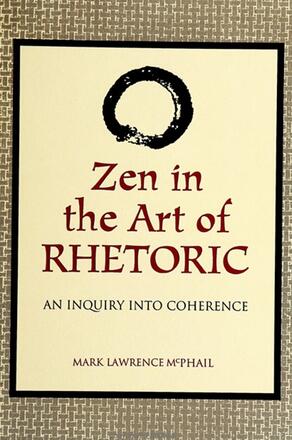
Zen in the Art of Rhetoric
An Inquiry into Coherence
Alternative formats available from:
Explores relationships between classical and contemporary approaches to rhetoric and their connection to the underlying assumptions at work in Zen Buddhism.
Description
Zen in the Art of Rhetoric interrogates the role of dualistic thought in human communication and culture, and offers new insights into the similarities and differences that mark Eastern and Western conceptualizations of language. Beginning with a reconsideration of the relationship between Zen Buddhism and rhetoric, the book progresses through a series of essays that examines the epistemological assumptions shared by pre-classical and postmodern rhetorics and Buddhist metaphysics, suggesting that the conception of rhetoric articulated by the Greek Sophists parallels the questioning of duality posed by Zenists as well as the critique of negation advanced by some postmodern theorists.
Drawing on poetry, personal narratives, critical analysis, and epistemological explorations, this book expands traditional conceptions of rhetoric beyond an "art of persuasion" to a power to manage diverse conceptions of reality, freeing the study and practice of discourse from the essentializing constraints of foundationist philosophy. As an "inquiry into coherence," the book explores social, political, and pedagogical issues ranging from racism, to cultural and ethnic diversity, to the role of argument and persuasion in the creation and perpetuation of difference. The result of this exploration is an understanding of rhetoric as a Tao, a Way of being, thinking, and speaking grounded in what the author calls "dialogic coherence," an actively non-argumentative approach to language, life, and method that is based upon the philosophies and practices of the Eastern martial arts.
Mark Lawrence McPhail is Associate Professor of Communications in the Department of Communication at the University of Utah.
Reviews
"Mark McPhail has written a fine book that offers the possibility of deconstructing the binary limitations of both modern and postmodern theory, resituating these theories in more reciprocal (rather than adversarial) terms. He offers a rich and powerful critique of the historical privileging of philosophy over rhetoric, as well as the ways that argumentative discourse serves to maintain the privileged position of philosophy, replacing one 'oppressive' rhetoric with another that is equally essentialist—even those discourses considered liberatory. McPhail interweaves his personal quest for rhetorical understanding with public concerns, reconceptualizing ways in which 'opposites' complement, rather than hinder, one another. " — George Kalamaras, Indiana University-Purdue University